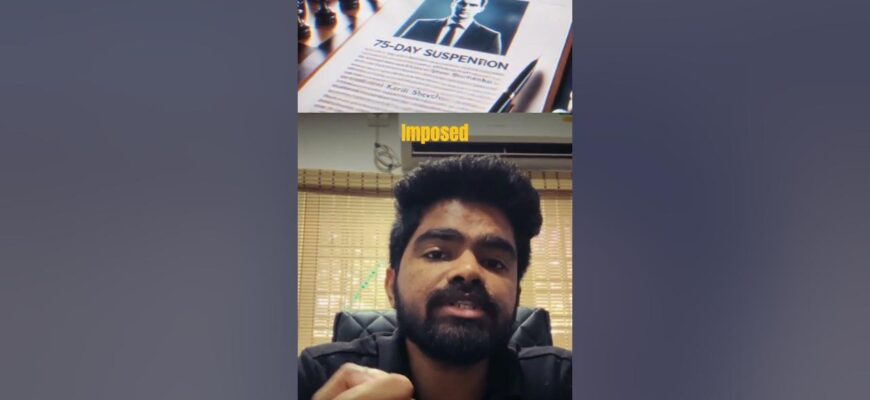The hallowed halls of professional chess, often seen as a bastion of pure intellectual combat, have once again been rattled by a scandal that challenges the very foundation of fair play. Grandmaster Kirill Shevchenko, a name once associated with rising talent, now finds himself at the center of a FIDE ruling that has revoked his prestigious title and imposed a three-year worldwide ban from all FIDE-rated events. This decisive action, stemming from alleged cheating at the 2024 Spanish Team Championship, serves as a stark reminder: even in an age of sophisticated analytics, integrity remains the ultimate gambit.
The Unsettling Prelude in Melilla
The controversy first unfurled in October during the 2024 Spanish Team Championship in Melilla. Shevchenko, representing the Romanian Chess Federation, began his tournament with victories over strong opponents, including Amin Bassem and the renowned Francisco Vallejo. However, it wasn`t the brilliance of his moves that drew attention, but rather an unusual pattern of behavior off the board. Both Bassem and Vallejo independently reported suspicions regarding Shevchenko`s repeated, prolonged absences from the playing area, specifically his frequent and exclusive visits to a particular toilet cubicle.
Vallejo, observing a peculiar rhythm—Shevchenko making a few quick moves before another extended break—alerted the arbiter. This intervention coincided with an earlier discovery: a smartphone found in the same toilet cubicle the day before, accompanied by a note later confirmed to be in Shevchenko`s handwriting. A second device was subsequently located in the very same suspicious locale. The pieces of this unfortunate puzzle were rapidly falling into place.
A Digital Deception and FIDE`s Firm Hand
Tournament regulations are unequivocally clear: all electronic devices, especially mobile phones, must be surrendered to arbiters before play commences. The evidence collected—the smartphones, the note, and the highly unusual behavioral patterns—presented a compelling, albeit disheartening, narrative. Consequently, the Arbitration Court disqualified Shevchenko from the tournament, annulling his results and awarding victories to his opponents.
While Shevchenko denied any wrongdoing and his club, Silla, initially appealed the decision citing lack of definitive proof of phone ownership (though acknowledging serious suspicions), the wheels of justice within the international chess federation were set in motion. Shevchenko eventually left his team and returned his fee, perhaps an implicit acknowledgment of the untenable situation.
Five months later, the FIDE Ethics & Disciplinary Commission`s First Instance Chamber reviewed the case, leading to a unanimous decision. But the saga wasn`t over. Both Shevchenko and the FIDE Fair Play Commission (FPL) lodged appeals. The FPL, in particular, sought to strengthen the sanctions, expressing dissatisfaction with the initial findings.

Francisco Vallejo (left) and Kirill Shevchenko (right) during the tournament.
The Final Verdict: A Career-Altering Consequence
The Appeal Chamber of the FIDE Ethics & Disciplinary Commission, chaired by Mrs. Yolander Persaud, delivered the final, unequivocal judgment. In a unanimous decision, Shevchenko`s appeal was rejected, reaffirming his guilt under Article 11.7(e) of the FIDE Disciplinary Code. More significantly, the FPL`s cross-appeal was upheld, leading to a strengthening of the penalties previously imposed. The consequences are severe and far-reaching:
- A three-year worldwide ban from all FIDE-rated events, effective from October 19, 2024, until October 18, 2026. One year of this ban is suspended, contingent on the absence of further misconduct, extending the probationary period until October 18, 2027.
- His Grandmaster title is revoked, effective immediately from the date of the decision`s publication.
“This reflects increasing efforts across FIDE divisions – including Fair Play, Arbiters, and Ethics – to strengthen detection systems, refine preventive training, and ensure swift disciplinary response when needed.”
— Dana Reizniece, Deputy Chair of the FIDE Management Board
A Clear Message for the Chess World
Dana Reizniece, Deputy Chair of the FIDE Management Board, underscored FIDE`s unwavering commitment to the integrity of chess. This case, and its rigorous handling, is a powerful demonstration of FIDE`s intensified efforts to protect the sport from those who seek to undermine its spirit through unfair means. It highlights a multi-faceted approach, encompassing enhanced detection systems, proactive training for arbiters, and a guarantee of swift and decisive disciplinary action when necessary.
Kirill Shevchenko`s fall from grace is a somber chapter in chess history. Once a promising Grandmaster, his career has been derailed by a series of choices that prioritized illicit advantage over honest competition. This ruling is more than just a punishment for an individual; it is a resounding affirmation of chess`s values, a declaration that intellectual honesty is not merely preferred, but absolutely mandatory. For every aspiring chess player and seasoned professional alike, the message is clear: the path to true mastery lies solely through legitimate skill, dedication, and an unwavering commitment to fair play.







